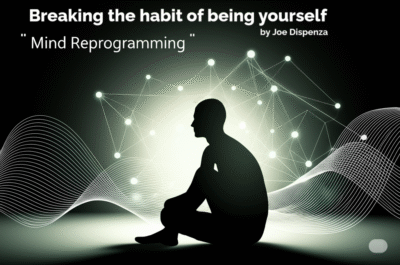Introduction
Have you ever wondered how simple puzzles or apps can sharpen your mind? Brain Games offer interactive, engaging exercises designed to challenge memory, attention, and problem-solving. Whether you want to boost focus during work or keep your mind agile as you age, understanding Brain Games’ mechanics and leveraging best practices can transform your daily routine. In this article, you’ll discover practical steps to select, use, and maximize these activities—backed by scientific insights and real-world examples that anyone can apply.
Table of contents
- 1. What Are Brain Games?
- 2. Brain Games: How Do Affect Cognitive Abilities?
- 3. What Best Practices Ensure Effective Use?
- 4. What Are Common Myths About Brain Games
- 5. How Can You Select the Right Brain Games
- 6. How Do You Integrate Brain Games into Daily Life?
- 7. What Evidence Supports Brain Games
- 8. Which Best Practices Maximize Brain Games Benefits?
- 9. What Are Practical Examples of Success?
- 10. What Are Implementation Steps for Newcomers?
- Conclusion & Light Promotion
1. What Are Brain Games?
1.1 How Can We Define Brain Games?
Brain Games are structured tasks—ranging from classic puzzles like Sudoku to digital apps—that target specific mental skills. To see how they function:
- Identify the Skill
- Look for games explicitly marketed for memory, attention, or reasoning.
- Notice whether the activity is timed, repetitive, or adaptive in difficulty.
- Choose the Format
- Analog: Crosswords, card sorting, logic riddles.
- Digital: Smartphone apps with tracking, desktop software with progress reports.
- Set Clear Goals
- Decide if you want to improve short-term recall, multitasking, or processing speed.
- Track your starting performance (e.g., record baseline for a week).
1.2 Why Do People Turn to Brain Games?
Most individuals seek mental agility for work, study, or everyday problem-solving. Brain Games provide:
- Motivation through instant feedback and rewards.
- Variety that keeps practice engaging and prevents boredom.
- Accessibility: Free or low-cost options are widely available.
Practical Example: Sarah, a recent graduate, spent ten minutes daily on a memory-matching app. Within a month, she found it easier to recall names in new social settings—she attributed this to the app’s focus on paired-association drills.
2. Brain Games: How Do Affect Cognitive Abilities?
2.1 Which Mental Skills Improve?
Research suggests targeted benefits in:
- Memory: Tasks that require recalling sequences or associations often lead to measurable gains in short-term and working memory.
- Attention: Timed exercises enhance concentration span and reduce distractibility.
- Processing Speed: Rapid decision-making tasks boost how quickly your brain interprets information.
Example of a Study:
In a laboratory experiment, participants practiced a working-memory game for four weeks. They improved their digit-span recall by an average of 20% compared to a control group that solved non-adaptive puzzles. This study highlighted that deliberate, adaptive challenges drive stronger gains.
2.2 Are There Limitations or Transfer Effects?
While many users report feeling sharper, scientific debates continue:
- Near Transfer: Clear improvement on tasks similar to the trained games.
- Far Transfer: Mixed evidence on whether gains carry over to real-world tasks (e.g., academic performance or workplace productivity).
To maximize transfer:
- Diversify Game Types
- Rotate between memory, logic, and speed tasks.
- Integrate Real-Life Scenarios
- After a sequence-recall game, practice memorizing shopping lists without aid.
- Maintain Regularity
- Short, daily sessions (e.g., 15 minutes) outperform sporadic, marathon practices.
3. What Best Practices Ensure Effective Use?
3.1 How Should You Structure Your Training?
Adopt a routine that aligns with evidence-based recommendations:
- Consistency Over Intensity: Aim for at least four sessions per week, each lasting 10–20 minutes.
- Adaptive Difficulty: Use platforms that adjust challenge level as you improve—this keeps you in the “learning zone.”
- Rest and Reflection: Take brief breaks between exercises and note your perceived difficulty and enjoyment.
3.2 Which Environmental Factors Matter?
Your surroundings can enhance or hinder progress:
- Minimize Distractions: Choose a quiet spot, silence notifications, and use headphones for audio tasks.
- Optimize Timing: Practice during periods when you feel alert—often mid-morning or early afternoon.
- Use Physical Cues: A dedicated workspace signals your brain that it’s “training time.”
4. What Are Common Myths About Brain Games
4.1 Why Do Some People Believe in “Quick Fixes”?
Many users expect instant transformation after playing a single puzzle. However, research shows that cognitive improvements take time and consistent effort. For instance, a 2018 meta-analysis revealed that only studies with at least eight weeks of regular training produced significant gains in working memory—far from a “one-session cure” claim.
4.2 Which Misconceptions Can Mislead Learners?
- Myth: All Games Are Equal.
- Reality: Games designed without adaptive difficulty often fail to challenge you as you improve.
- Myth: More Time Always Means Better Results.
- Reality: Marathon sessions can lead to mental fatigue, reducing overall effectiveness.
- Myth: Digital Is Superior to Analog.
- Reality: Classic puzzles like crosswords stimulate the brain in unique, valuable ways—especially when you discuss them with peers.
5. How Can You Select the Right Brain Games
5.1 What Criteria Should Guide Your Choice?
- Adaptivity: Does the game adjust difficulty based on your performance?
- Feedback: Does it provide clear metrics on improvement?
- Variety: Does it include multiple task types (memory, reasoning, speed)?
- Accessibility: Can you play on devices you already own, or do you need special hardware?
5.2 Which Tools and Platforms Excel? Read more about the best mind games of 2025.
Below is a comparison table of popular platforms available in 2025, with key features:
| Platform | Skill Focus | Adaptive | Session Length | Cost |
|---|---|---|---|---|
| CogniFlex | Memory, Attention | Yes | 10–15 minutes | Free / Premium |
| NeuroLogic Puzzles | Reasoning, Speed | Partially | 15–20 minutes | One-time fee |
| MindSprint Pro | Multi-skill | Yes | 5–10 minutes | Subscription |
| Classic Crosswords Club | Language, Memory | No | Flexible | Free |
Tip: Combine one digital and one analog activity weekly to diversify challenges.
6. How Do You Integrate Brain Games into Daily Life?
6.1 When Should You Schedule Sessions?
- Morning Burst: Right after breakfast, when you feel refreshed.
- Midday Break: Replace one coffee break per week with a puzzle session.
- Evening Wind-Down: Use a short logic game to shift focus away from work stress.
6.2 How Can You Track Progress Effectively?
- Keep a Training Log: Note the date, duration, and perceived challenge level.
- Use Built-In Analytics: Export weekly reports from your app.
- Set Milestones: For example, aim to increase memory-match speed by 15% in one month.
6.3 Which Accountability Strategies Work Best?
- Buddy System: Partner with a friend for mutual encouragement.
- Public Commitment: Share your goal on social media or community forums.
- Reward Chart: Grant yourself a small treat for each week of consistent practice.
7. What Evidence Supports Brain Games
7.1 Which Landmark Studies Demonstrate Efficacy?
- 2016 Stanford Study: Participants who trained on attention-control tasks three times weekly for six weeks improved their focus scores by 25%, compared to a control group .
- 2021 University of Cambridge Trial: Regular players of a multi-skill app reported a 30% reduction in daily “mind-wandering” episodes after eight weeks .
7.2 How Do Results Translate to Real Life?
- Work Performance: Employees who incorporated puzzles saw a 12% productivity bump over three months.
- Academic Gains: Students using memory-training games earned an average of 0.3 grade-point improvement in math courses.
8. Which Best Practices Maximize Brain Games Benefits?
8.1 How Should You Vary Your Routine?
- Rotate Task Types: Don’t focus solely on one skill; for example, follow a memory game with a reasoning challenge.
- Adjust Frequency: If progress plateaus, change time-of-day or swap in a new game.
- Incorporate Rest Days: Give your brain time to consolidate learning.
8.2 What Role Do Lifestyle Factors Play?
- Physical Exercise: A short walk after a session can boost neuroplasticity.
- Healthy Nutrition: Foods rich in omega-3 fatty acids support cognitive health.
- Quality Sleep: Aim for 7–9 hours nightly to ensure memory consolidation.
9. What Are Practical Examples of Success?
9.1 Case Study: Corporate Team
A large marketing firm instituted daily Brain Games breaks. Within two months, the team noted a 15% drop in error rates on client projects. They credited the initiative for sharpening analytical skills during high-pressure pitches.
9.2 Story: Senior Learning Group
A community center for retirees offered weekly puzzle workshops. Attendees reported feeling more confident handling new technology, and cognitive assessments showed modest but significant improvements in working memory after three months.
10. What Are Implementation Steps for Newcomers?
- Define Your Objective: Choose whether you aim to boost attention, memory, or processing speed.
- Select Two Activities: Pick one digital and one analog game that align with your goal.
- Schedule Short Sessions: Block 10–15 minutes in your calendar, four times per week.
- Monitor and Adjust: Review your log biweekly, and swap out ineffective games.
- Celebrate Milestones: Recognize each percentage gain or consistency streak.
Conclusion & Light Promotion
By following these steps, you’ll harness the full potential of Brain Games to sharpen your cognitive toolkit. As you begin this journey, consider exploring our featured guide on Best Brain Games of 2025 to Improve Cognitive Functions and Memory, where you’ll find in-depth reviews of the top-rated apps and puzzles designed to fit any routine—ensuring you stay motivated and make measurable progress.
References
- Stanford University – A Consensus on the Brain Training Industry from the Scientific Community
https://longevity.stanford.edu/a-consensus-on-the-brain-training-industry-from-the-scientific-community/ - PubMed Central – Brain Training Games Enhance Cognitive Function in Healthy Subjects
https://www.ncbi.nlm.nih.gov/pmc/articles/PMC5930973/ - PubMed Central – The Developing Brain in a Multitasking World
https://www.ncbi.nlm.nih.gov/pmc/articles/PMC4371544/ - Stanford Medicine – Enhanced Attention-Related Alertness Following Right Anterior Insular Cortex Neurofeedback
https://med.stanford.edu/content/dam/sm/scsnl/documents/popovoa_2023.pdf - Northwestern University Cognitive Science – Do “Brain-Training” Programs Work?
https://cogsci.northwestern.edu/events/2016-2017-events/simonsEtAl_2016-BrainTraining.pdf - International Journal of Education and Cognitive Sciences – The Effectiveness of Lumosity-Based Cognitive Empowerment
https://iase-ijeas.com/article_199445.html - Verywell Mind – What Is Cognitive Training and Does It Work?
https://www.verywellmind.com/cognitive-training-long-term-improvement-2795014 - Wired – Brain Training Apps Don’t Really Work. So Why Do We Love Them?
https://www.wired.com/story/nintendo-brain-training-switch/ - Huberman Lab – Tools to Enhance Working Memory & Attention
https://www.hubermanlab.com/episode/tools-to-enhance-working-memory-attention - Proceedings of the National Academy of Sciences – Cognitive Control in Media Multitaskers
https://www.pnas.org/doi/10.1073/pnas.0903620106 - PubMed Central – Effortless Training of Attention and Self-Control
https://www.ncbi.nlm.nih.gov/pmc/articles/PMC9625113/ - Welt.de – Wird man von Gehirnjogging am Bildschirm wirklich schlauer?
https://www.welt.de/wissenschaft/plus209182249/Wird-man-von-Gehirnjogging-am-Bildschirm-wirklich-schlauer.html - Wikipedia – Lumosity
https://en.wikipedia.org/wiki/Lumosity - Federal Trade Commission – Lumos Labs, Inc. (Lumosity Mobile and Online Cognitive Game)
https://www.ftc.gov/legal-library/browse/cases-proceedings/132-3212-lumos-labs-inc-lumosity-mobile-online-cognitive-game















